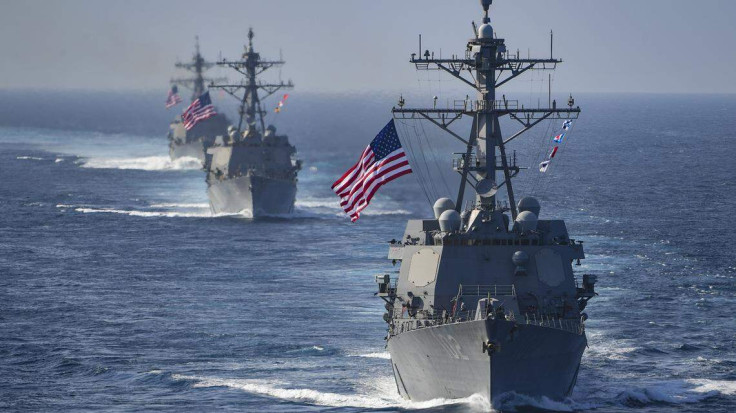
Trinidad and Tobago has declared its support for the U.S. Navy's recent deployment near Venezuela and said it would allow American forces to use its territory if president Nicolás Maduro were to attack neighboring Guyana, with which it currently has a heated territorial dispute.
The remarks follow Washington D.C.'s decision to deploy three Navy destroyers along with an amphibious squadron to the southern Caribbean to conduct counternarcotics operations. The Trump administration framed the mission as an effort to dismantle "terrorist drug cartels," while Maduro announced plans to mobilize more than 4.5 million militia members and sign up more to "defend national sovereignty."
"Trinidad and Tobago has always had good relations with the Venezuelan people and that will continue," said Trinidad and Tobago Prime Minister Kamla Persad-Bissessar in a statement. "However, I want to make it very clear that if the Maduro regime launches any attack against the Guyanese people or invades Guyanese territory and a request is made by the American government for access to Trinidadian territory to defend the people of Guyana, my government will unflinchingly provide them that access."
Guyana, which has an ongoing dispute with Venezuela over the Essequibo region, expressed concern a day earlier about transnational crime and pledged to work with partners on regional security.
"By confronting transnational organized crime and narco-terrorism with unity, we reaffirm our dedication to upholding the rule of law and ensuring that the region remains a Zone of Peace," Georgetown said in a statement. President Irfaan Ali added that defending Guyana's sovereignty requires "experience, international presence, and leadership that our partners can trust."
The Essequibo, a 160,000-square-kilometer territory rich in oil, has been administered by Guyana but is claimed by Venezuela. Caracas rejects the jurisdiction of the International Court of Justice, which is hearing the case, and has accused Guyana of acting as a "pawn" of ExxonMobil.
Persad-Bissessar linked her government's support for U.S. naval operations to escalating violence at home. Trinidad and Tobago recorded 625 murders last year, its deadliest on record, with nearly half tied to gang activity, according to Insight Crime. "Small island states like ours simply do not have the financial and military resources to take on the drug cartels," she said.
Relations between Port of Spain and Caracas have been increasingly sour as of late. In June Persad-Bissessar rejected Venezuelan claims that a Trinidadian was involved in a terrorist plot against Maduro. She announced she would consider authorizing the use of lethal force against unidentified vessels entering from Venezuelan waters, and advised Venezuelan migrants in Trinidad to "begin to return home."
Despite cooperation in the energy sector, U.S. sanctions have curtailed Trinidad's joint gas projects with Venezuela. Persad-Bissessar has emphasized her alignment with Washington, stating: "No rhetoric from the Maduro government can create division between this government and the government of the United States. We firmly support the United States on matters related to Venezuela."
© 2025 Latin Times. All rights reserved. Do not reproduce without permission.





